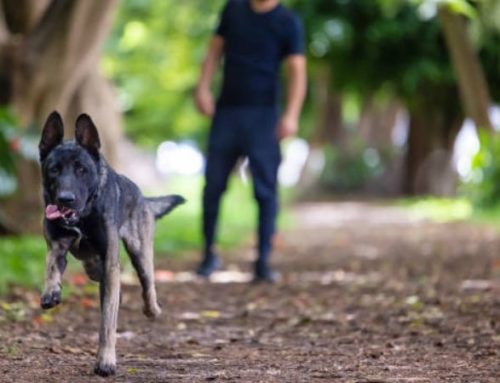Curious about welcoming a Burmese cat into your home but unsure what to expect in terms of cost? Whether you’re drawn to the sleek black, soft blue, or rich brown coat, or just want to find a healthy kitten nearby, our 2025 Burmese Cat Price Guide has you covered.
From understanding price ranges to tips on sourcing reputable breeders, Nexus Pets breaks down everything you need to know before bringing one of these affectionate, playful companions into your family.
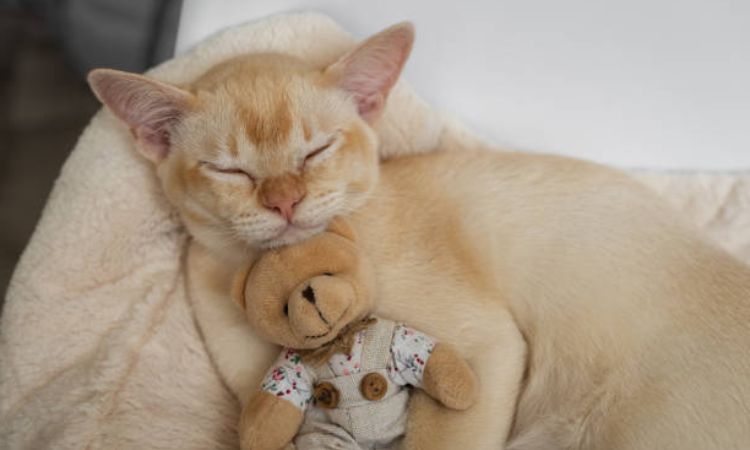
Initial Cost: Burmese Kitten Price Breakdown (2025)
Burmese Kitten Price from a Reputable Breeder
When purchasing a Burmese kitten from a reputable breeder, prices vary depending on the quality and lineage of the cat.
- Average Pet-Quality Kitten Price: $600–$1,000
Pet-quality kittens are ideal for families seeking affectionate companions and typically come with basic health guarantees. These kittens are socialized, vaccinated, and often microchipped, but are not intended for show or breeding purposes. - Show/Breeding Quality Kitten Cost: $1,500–$2,500+
Kittens bred for show or breeding have sought-after bloodlines and meet strict breed standards. These higher-end kittens are often more expensive due to careful breeding, genetic testing, and pedigree documentation.
Burmese Adoption/Rescue Fees
Adopting a Burmese cat is a cost-effective alternative to purchasing from a breeder.
- Adoption Fee Range: $150–$350
Most adoption fees include spay/neuter procedures, vaccinations, and sometimes microchipping. Rescue organizations also often provide ongoing support and vet checks to ensure the cat is healthy and ready for a new home. - Why Adoption is a More Affordable Option:
Adopting from a shelter or rescue allows prospective owners to bring home a loving Burmese cat at a fraction of the breeder cost. While purebred Burmese cats are less commonly available for adoption, rescues occasionally have adults or older kittens, which can save money while offering a cat a second chance at a loving home.
Price by Color and Type
Burmese cats come in a variety of colors and types, which can influence the price.
- Traditional Colors:
- Sable/Brown, Blue, Chocolate, Lilac/Platinum
Prices for these standard colors typically fall within the pet-quality range of $600–$1,000, depending on the breeder and location.
- Sable/Brown, Blue, Chocolate, Lilac/Platinum
- Rare Colors or Types:
- European Burmese vs. American Burmese, or unusual color variations
Rare or European Burmese cats can command higher prices, ranging from $1,500–$2,500+, particularly if the kitten is show-quality or from a highly sought-after lineage. Rare colors like platinum, lilac tortoiseshell, or golden apricot may also increase the cost due to their scarcity and aesthetic appeal.
- European Burmese vs. American Burmese, or unusual color variations
One-Time Setup Costs (First-Year Expenses)
Initial Veterinary Care
Before settling into a new home, Burmese kittens require proper veterinary attention:
- Core Vaccinations and Deworming: Burmese kittens need a series of vaccinations to protect against common feline diseases. Deworming treatments are also essential to prevent intestinal parasites. These preventive measures generally cost $50–$100.
- Spay/Neuter Surgery: Responsible pet ownership often involves spaying or neutering your kitten to prevent unwanted litters and support overall health. This procedure typically costs around $145 if not included in an adoption or breeder package.
- Microchipping: A microchip ensures your cat can be identified if lost, providing peace of mind. The one-time cost is usually $45–$55.
Essential Supplies
Burmese cats have minimal grooming requirements, but they still need basic supplies for comfort, hygiene, and entertainment:
- Litter Box and Litter: A quality litter box is essential for your cat’s hygiene, with a one-time cost of around $25. Initial litter supply and scoops add another $10–$20.
- Food and Water Bowls: Durable bowls are necessary for feeding and hydration. Initial cost: approximately $10.
- Bed, Carrier, and Toys: A cozy bed ensures your cat has a safe place to rest. A carrier is essential for vet visits and travel. Toys help with mental stimulation and exercise. Combined, these items typically cost $100–$150, depending on quality and quantity.
- Grooming Tools (Minimal for Burmese): Burmese cats have short, fine coats that require little grooming. A rubber brush and nail clippers are sufficient, with a one-time cost of $15–$20.
Estimated Total One-Time Costs: $200–$400 (excluding the price of purchasing or adopting the kitten)
These expenses cover the essentials for a healthy and happy Burmese cat during their first year. Planning ahead ensures a smooth transition for both you and your new feline companion.
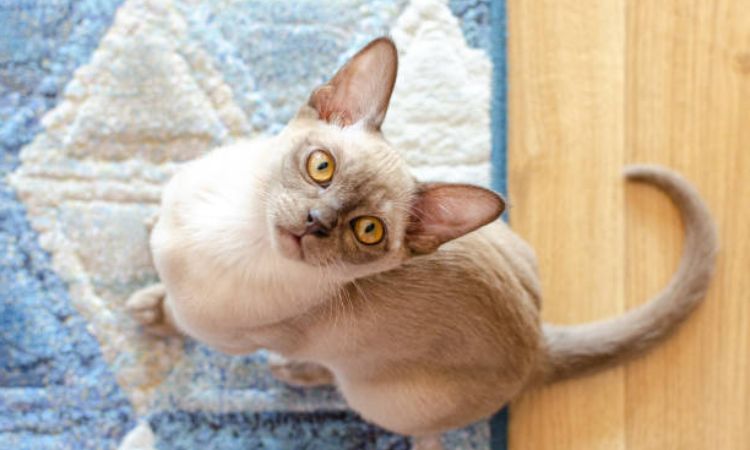
Long-Term and Monthly Burmese Cat Costs
Routine Health and Veterinary Care
Regular veterinary care is essential for Burmese cats, especially because some are prone to breed-specific health issues.
- Annual Wellness Checkups: Most adult Burmese cats benefit from two wellness exams per year, including physical exams, vaccinations, and preventive treatments. Plan to spend approximately $200–$400 per year.
- Dental Care: Dental health is critical for preventing gum disease and other complications. Brushing at home a few times per week is recommended, and professional cleanings may cost $100–$300 annually depending on your veterinarian and the cat’s needs.
- Breed-Specific Health Concerns: Burmese cats can be susceptible to hypokalemia, diabetes mellitus, and certain heart conditions. Early detection through regular checkups can help manage these conditions, potentially reducing expensive treatments later.
Estimated Monthly Allocation: $10–$60, depending on age and health status.
Nutrition (Food and Supplements)
Proper nutrition is key to maintaining your Burmese cat’s health, energy, and longevity.
- High-quality wet and dry cat food with protein as the primary ingredient is recommended.
- Some cats may require special diets for health conditions, such as urinary tract support or kidney health.
- Occasional supplements, like omega fatty acids for coat health or vitamins for older cats, may be needed.
Estimated Monthly Cost: $20–$40, varying based on food brand, diet type, and quantity.
Recurring Supplies
Burmese cats need a few key supplies that must be replenished regularly:
- Litter: Replace weekly or biweekly, $15–$25 per month.
- Toys and Enrichment Items: Maintain mental and physical stimulation; $10–$20 per month.
- Scratching Posts: Worn or damaged posts may need replacement every few months; plan $5–$10 monthly on average.
Estimated Monthly Allocation: $30–$55.
Pet Insurance and Emergency Fund
Unexpected medical issues can arise at any time.
- Pet Insurance: Covers accidents and illness, with premiums typically ranging from $20–$60 per month.
- Emergency Fund: It’s wise to set aside extra savings for unexpected vet bills not covered by insurance. A monthly contribution of $10–$30 can help you prepare for sudden medical expenses.
Estimated Monthly Allocation: $30–$90, combining insurance and savings.
Total Estimated Monthly Cost
Factoring in all recurring expenses—healthcare, nutrition, supplies, and insurance—the total monthly cost of owning a Burmese cat is generally:
$50–$300 per month, depending on your cat’s age, health, and lifestyle choices.
- Kittens and senior cats may be at the higher end of this range due to more frequent veterinary care.
- Adult cats in good health typically fall in the mid-range.
Proper long-term care of a Burmese cat requires planning for veterinary visits, preventive care, quality nutrition, and ongoing supplies. By budgeting $50–$300 per month, you can ensure your Burmese cat enjoys a healthy, happy life, while avoiding financial surprises.
How to Find a Burmese Kitten Near You
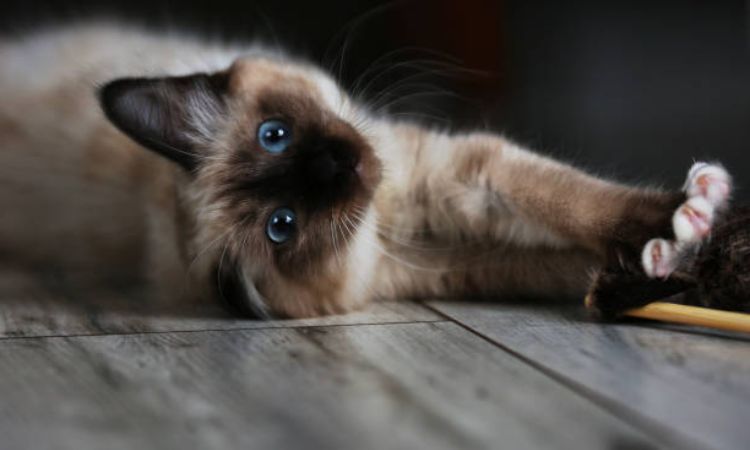
Reputable Burmese Breeders
Purchasing from a responsible breeder is often the most reliable way to ensure your kitten is healthy, well-socialized, and free from genetic issues.
How to Vet a Responsible Breeder:
- Look for breeders registered with TICA (The International Cat Association) or CFA (Cat Fanciers’ Association), which ensures adherence to ethical breeding standards.
- Confirm that breeders perform genetic and health testing for common Burmese conditions, such as hypokalemia and diabetes.
- Review contracts carefully, ensuring they include health guarantees, spay/neuter clauses, and return policies if the kitten cannot stay with you for any reason.
Questions to Ask Potential Breeders:
- Can I see the kitten’s parents and their health clearances?
- How long have you been breeding Burmese cats?
- What socialization practices do you follow with kittens?
- Are vaccinations, microchipping, and spay/neuter included before adoption?
- Do you offer guidance and support after adoption?
Reputable breeders prioritize the kitten’s long-term health and temperament and are transparent about lineage and medical history.
Burmese Breed-Specific Rescues
Breed-specific rescue organizations are another excellent option for finding Burmese cats, especially older kittens or adult cats in need of a new home.
- Many rescues specialize in Burmese cats and provide medical care, spay/neuter, vaccinations, and microchipping before adoption.
- Social media pages or official rescue websites often list available cats, making it easier to find one near you.
- Adoption fees typically range $150–$350, making this a more affordable option than purchasing from a breeder.
Rescuing a Burmese cat not only gives a pet a second chance but also often includes support and guidance from experienced volunteers familiar with the breed.
General Animal Shelters and Pet Adoption Websites
While less common, Burmese cats occasionally appear at local animal shelters or through national adoption websites.
- Check platforms like Petfinder, Adopt-a-Pet, or local humane societies for Burmese listings.
- Be prepared to act quickly, as pedigree kittens at shelters are rare.
- Adoption typically includes veterinary care such as spay/neuter, vaccinations, and sometimes microchipping.
Adopting from a shelter is a cost-effective way to bring a Burmese cat into your home while supporting animal welfare.
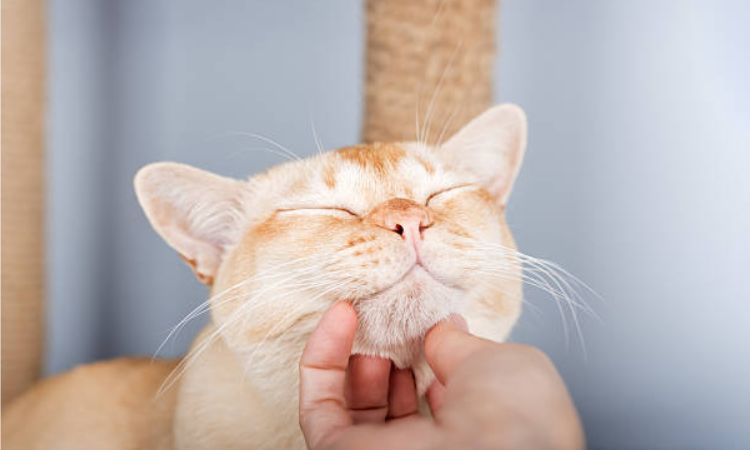
Warning Signs: Avoiding Backyard Breeders and “Kitten Mills”
It’s important to avoid breeders who prioritize profit over the health and welfare of cats. Common warning signs include:
- Lack of proper health documentation or refusal to provide genetic testing.
- Breeders who cannot show the kitten’s parents or living conditions.
- Overcrowded facilities or kittens appearing sick, malnourished, or overly fearful.
- Extremely low prices that seem “too good to be true,” often indicating poor breeding practices.
Backyard breeders and kitten mills often produce kittens with genetic health problems, behavioral issues, and poor socialization. Avoiding these sources ensures your Burmese cat has the best start in life.




